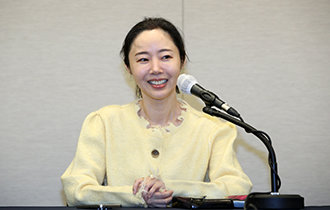[Editorial] Falling Behind in Science and Technology
[Editorial] Falling Behind in Science and Technology
Posted November. 28, 2008 03:00,
Koreas science and technology in 364 fields is 72 percent of the level of global leaders, lagging behind 6.8 years, according to the Education, Science and Technology Ministry. A ministry report also predicted Korea will not obtain any of the most advanced global technologies over the next five years. The news put a damper on the people, who are already feeling the effects of the sluggish economy.
Science and technology is governed by the rule of winner-take-all. The United States holds the largest number of the most advanced global technologies among the 364 fields with 270, followed by the European Union with 60 and Japan 34. In contrast, all other countries can claim no ownership or control of any of the fields. Nonetheless, the three leading countries have made all-out efforts to further develop their technologies and nurture talented staff to maintain their competitive edge. Korea and other countries will always remain as the consumers of the three science giants unless they narrow the gap. This is especially true given that state-of-the-art technologies and goods should be imported or borrowed at hefty royalties.
Though each country has strived to gain competitiveness on the global stage, Korea has seen its science and technology regress mainly due to decreasing enrollment in science and engineering. One cannot but worry whether Korea has fallen far behind the global competition. According to the 2006 OECD Program for International Student Assessment, Korean high school freshmen fell from fourth in 2003 to eleventh. The nation should consider a broader picture of its future if becoming a global leader within a few years is difficult. Prospects are far from bright, however, given unfavorable conditions.
Since the inauguration of the Lee administration, domestic science and technology experts say the government has neglected them. More precisely put, they cite no political leadership leading the science and technology community toward progress. Education, Science and Technology Minister Ahn Byong-man and senior presidential secretary for education, science and culture Jeong Jin-gon are blamed for squabbling over personnel appointments while neglecting science and technology development.
The government in August announced a plan to increase its R&D budget to five percent of GDP, but no progress has been shown yet. While it sits on its hands, the country`s brilliant minds continue to avoid science and engineering fields at home, and those studying abroad are reluctant to return due to Korea`s poor research environment. The government must awake to the sobering reality and roll up its sleeves to develop domestic science and technology.






